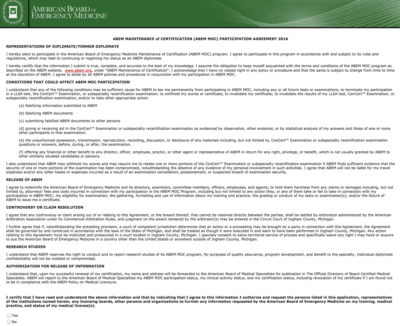In my practice of Emergency Medicine I see a lot of people, and consequently a lot of feet. Some people bring me their feet as their problem, and that’s what I’m there for. No biggie.
Some are reticent to remove their shoes: these are the ones that have foot problems, usually amazingly advanced cases of foot fungus. This isn’t surprising given our societies’ wearing plastic shoes (sneakers) that don’t / won’t breathe. So, I’ll spend no small amount of time explaining how the problem begins with warm, dark and wet, and how getting the feet out of the shoes was the best thing to do. Then, it never ceases to amaze me that people I’ve just spent significant time discussing the need to dry out their feet and get them out of their shoes are the ones who are back in them the second I leave the room. I hope beyond hope they go home and air the dogs out, and that they go and get some shoes that’ll breathe.
Additionally, I’ve stopped wearing shoe covers during my shifts. Though I wear mesh-topped shoes, I noted my own feet needed some ‘airing out’, and have changed my ways. I now wear them when I suspect I’ll need them, but not just because I’m at work.




There are also some basic hygiene things, like wearing clean socks with your shoes, not wearing wet shoes, washing your feet…
It’s amazing how you may see some otherwise clean-appearing person who apparently has some aversion to washing their feet and putting on clean socks.
Actually, if you have the right commensal bacteria on your feet, you don’t need to keep them dry, or wash them…..ever.
I am working with autotrophic ammonia oxidizing bacteria, which can live on unwashed skin for years, living only on natural secretions. They are obligate autotrophs, they derive organic carbon only from fixing CO2 using ATP derived by oxidizing ammonia to nitrite. The nitrite and NO they produce inhibits the heterotrophic bacteria that cause odor and disease. This is the reason there are so many sweat glands on the feet and palms, to release ammonia to nourish these bacteria and suppress the heterotrophic ones that can cause disease.
I can’t stand to wear shoes – although I definitely do wear them to work and when I have to! Once spring/summer come along, I wear flip flops whenever I’m off from work, but still have to go somewhere. Otherwise, I go barefoot around the house all the time! Probably not always good for the feet either, but hey – I don’t have any foot fungus problems – just very tough soles! lol… I remember walking on this beach of almost all shells that is the end of a long walk down at my grandparents’ place in Florida, and when I was a kid, we used to carry a bucket with my flipflops in them because I couldn’t walk on those shells. Now, I can walk to that beach barefoot and it doesn’t hurt! lol…
There was a time in nursing school (I think during my first rotation) where if there was a patient with diabetic foot complications, then I was taking care of them. I felt like I was becoming an expert on osteomyelitis and other baaad foot problems. It’s amazing what a really bad case of complicated diabetic feet can do to the entire odor of the room!
So now I’ll just say – I love baby feet! Everyone loves baby feet anyway, but when you’re a nurse, baby feet are the greatest! :)
Take care,
Carrie :)
LOL… remember the 0311 feet!!!!